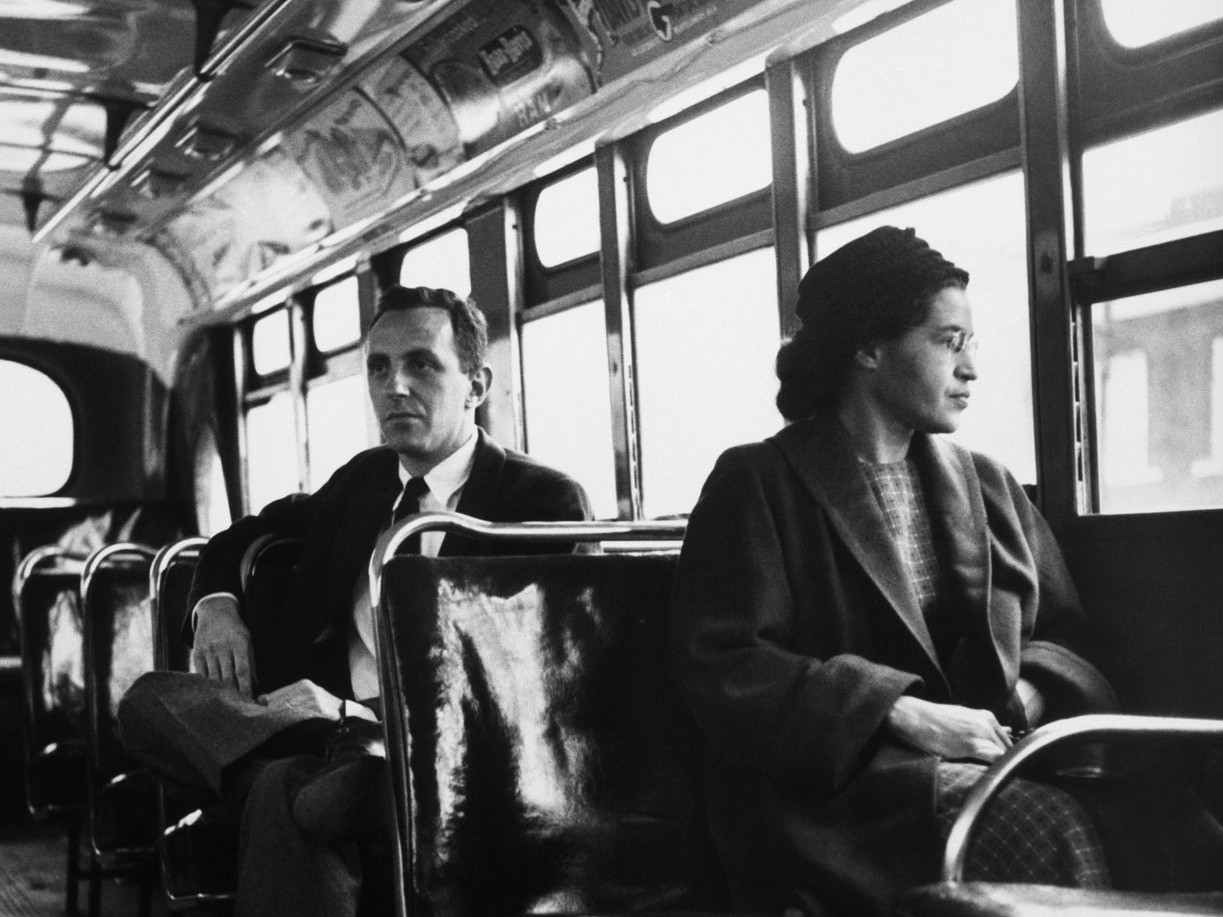Throughout Champion of the World, Angelou utilizes irony to create a realistic perspective regarding treatment toward the Afro-american race in a white society. This chapter of I Know Why the Caged Bird Sings is a retelling of the Brown Bomber's title match through the eyes of a younger Angelou. In her recollection of the fight, one of the radio announcers claims that he "ain't worried 'bout this fight" (Angelou 88). Although this can be taken as a bout of confidence it is in fact the very contrary. Before the Announcer broadcasts this assertion, the author creates a mood of urgency. Angelou writes that every "last inch of space was filled" because not a single person wanted to "miss a word" (Angelou 88). She also follows by describing that children were "perched on every lap available" as if there was no one (babysitters included) to take care of the kids at home--or possibly that this event was so important that parents didn't want their children to miss such a grand event. The setting is also narrated to carry an "apprehensive mood" as a "black sky streaked with lightning" (Angelou 88). By creating a tone of anxiety and uncertainty, it's fair to say that the radio announcer's worry-free nature is anything but comfortable. When in a predicament, it is natural for man to speak some gobbledygook to bolster his confidence: a placebo effect. By recapitulating the desired outcome over and over again, regardless of the likelihood of the actual future, the human mind accepts this proclaimed fate that he covets. At this time period, the majority of the Afro-american race were seen as stupid and weak. Not only that, not one Afro-american had held the WBF Heavyweight Championship Title in twenty-two years. The odds were definitely stacks against Louis' favor. In short, the Announcer is not actually stating that he "ain't worried 'bout this fight" out of confidence, but rather he is trying to rectify or invalidate his own skepticism. What's so important about the inclusion of the Announcer's declaration is the fact that his statement is not only something that belonged to him, but rather belonged to the entire Afro-american race. This inclusion of verbal irony ,that in actuality implies a sense of "apprehension," reflects weakness that the Afro-american experienced in that aeon (Angelou 88). Think about it. Throughout the entire chapter, Angelou refrains from describing all but a few of the tons of characters that congested the shop, as if none of the other characters beyond Angelou herself, Uncle Willie or her friend, Bailey, have an identity in the "Store" (Angelou 88). She even refers to her fellow people as a "crowd" as if one body and no individuality (Angelou 89); and without individual worth, these people have no real value. The words are not of the Announcer's own, but rather a cry of the entire Afro-american race trying to reassure itself that it is not worthless, not only "a little than apes" (Angelou 90). By doing so, Angelou successfully places her audience in the perspective of a black man or woman, clearly depicting the struggles and self-conflict that they had to trudge through as life passed on in a white society.
P.S.
Here's a picture of a black man
Here's one of a black woman

(Both photos are left uncredited due to lack of identity)
No comments:
Post a Comment